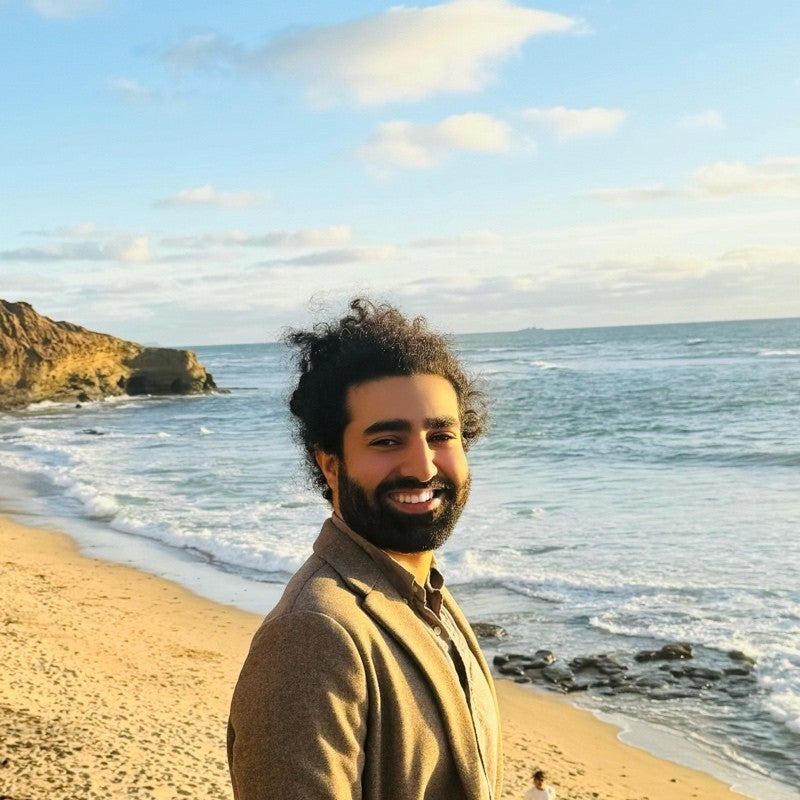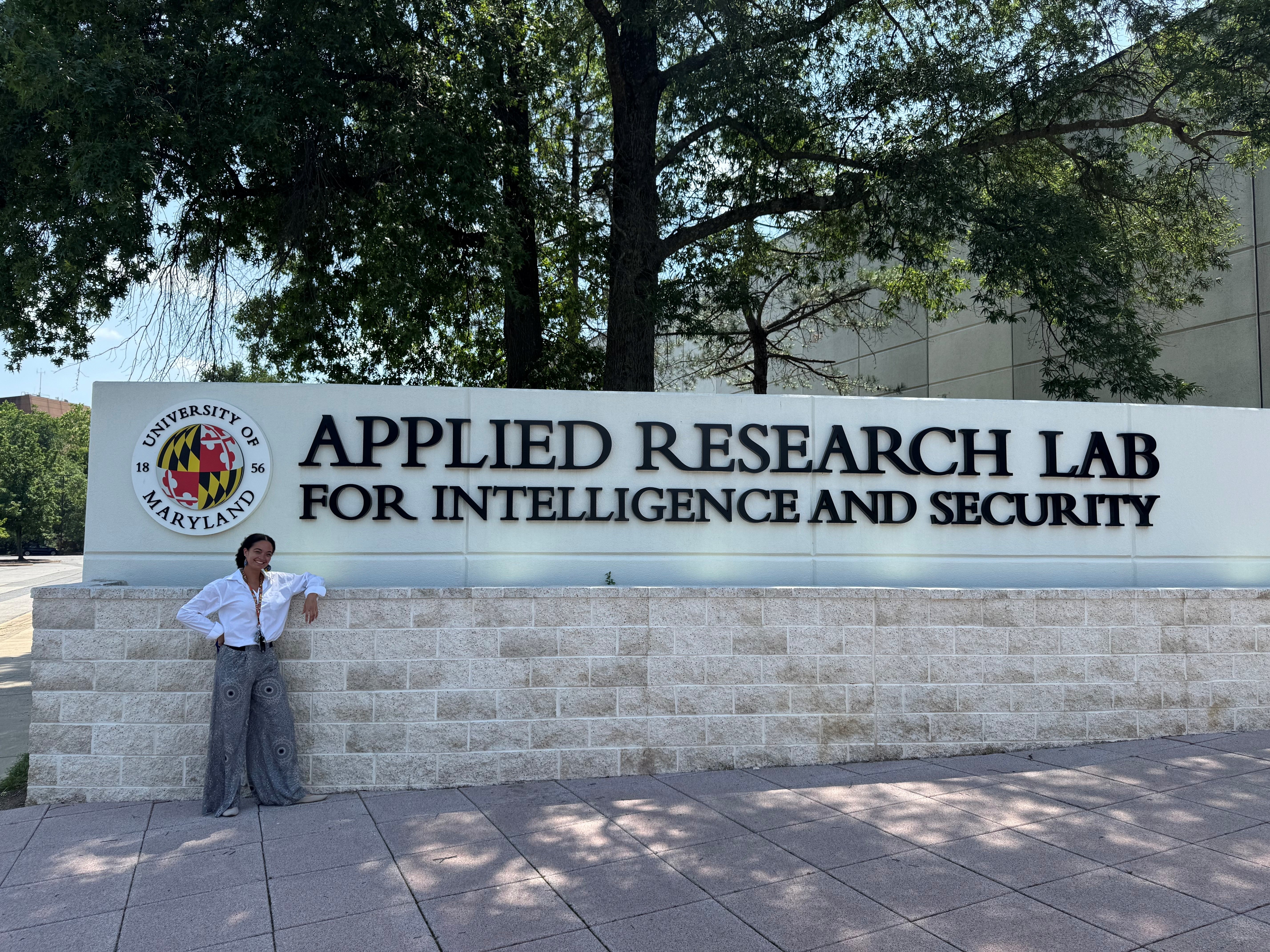RISC is a 10-week, paid internship that pairs students with faculty mentors and government sponsors to tackle real-world national security problems. It’s not just another summer research gig. It’s hands-on, cross-disciplinary, and designed to build a pipeline of talent for the Department of War, Intelligence Community, and mission-driven research.
Below are three stories of how people from very different backgrounds used RISC as a launchpad – and what they’re doing now.

Ellie Tyler
Pre-RISC background: Major in Clinical Neuroscience, minor in National Security/Foreign Affairs. The 2022 invasion of Ukraine spurred her interest in the interplay between conflict, policy, and emerging technology. A course called “War and the Brain” sparked a light-moment for her by providing initial insight into the health-related defense field and inspiring her to seek opportunities to explore it further.
Why RISC? She wanted to gain work experience geared towards further exploring the intersection of health × policy × emerging tech × security. RISC offered a foot in the door at ARLIS and the broader applied research/UARC space.
What she discovered:
- Developing a mental map of the government landscape takes time, but understanding the different organizations and their missions can help one navigate early career steps.
- Having an interdisciplinary team is key when addressing complex problems, because it brings different perspectives together and fosters an environment where team members can learn from one another.
Next steps: She remains at ARLIS full time and is concurrently pursuing graduate work in Biodefense at George Mason University.

Amir Ghaemi
Pre-RISC background: Third-year at University of Maryland, majoring in Computer Engineering. Interested in software engineering in industry. Little to no prior exposure to government/public sector.
Why RISC? Learned about the RISC program (then-called ”AIRICC”) through a professor. The chance to use his STEM skills on government-relevant problems while staying at UMD caught his attention.
What he discovered:
- Classroom problems typically have known answers; the problems at RISC didn’t. They were open ended, mattered to national security, and forced him to think creatively.
- He worked in a team with a mix of skill levels (including a PhD student), which accelerated his learning.
Next steps: After his summer, he worked as research assistant at ARLIS, graduated May 2022, joined full time, then completed an M.Eng in Systems Engineering in May 2025.
What he’d say to you: If you’re STEM and wondering “How do my skills map to national security?” RISC gives you a solid sample of that route.
Take-away: RISC reshaped his career trajectory, from “industry only” to government/research pathway.

Brianna Gist
Pre-RISC Background: Senior at Georgetown University, majoring in Linguistics, minor in French & Government. Interested in international affairs, diplomacy, the idea of foreign service.
Why RISC? She found the program via a listserv, reached out to ARLIS staff, and was drawn to the idea of: “paid to learn for a summer,” getting cleared, working on government-relevant research.
What she discovered:
- Active communication matters.
- The mentorship aspect was significant: weekly meetings with a faculty mentor at START gave her a taste of how to “professionalize” academic research in a government context.
- The capstone deliverable + briefing to the sponsor + trip to ARLIS made everything “real.”
Next steps: After RISC she worked for ARLIS for four years and then landed a role at the State Department as an analyst working on Africa / public opinion, using both quantitative and qualitative tools.
What she’d say to you: If you want to keep your options open, want real work (not just classroom problems), and want experience in the IC/government space, RISC gives you a “vote of confidence” that you can do this.
Take-away: RISC helped her clarify that foreign service wasn’t exactly right for her, but turned her toward intelligence/government analytics instead.
Why you should apply
- It’s paid, meaningful, and opens doors. You’re working on problems that matter for the DOW/IC, not just hypothetical case studies.
- Your major doesn’t limit you. As you see above - linguistics, neuroscience, engineering - all found value.
- Mentorship + networking = career acceleration. RISC gives you access to faculty, government sponsors and final briefings – all building your professional network.
- The program is explicitly designed to build a future workforce for national-security challenges and welcomes diverse students.
- Whether you know your path or not, RISC gives you real experience, helps you clarify what you want (and what you don’t), and gives you a credential you can carry forward.
